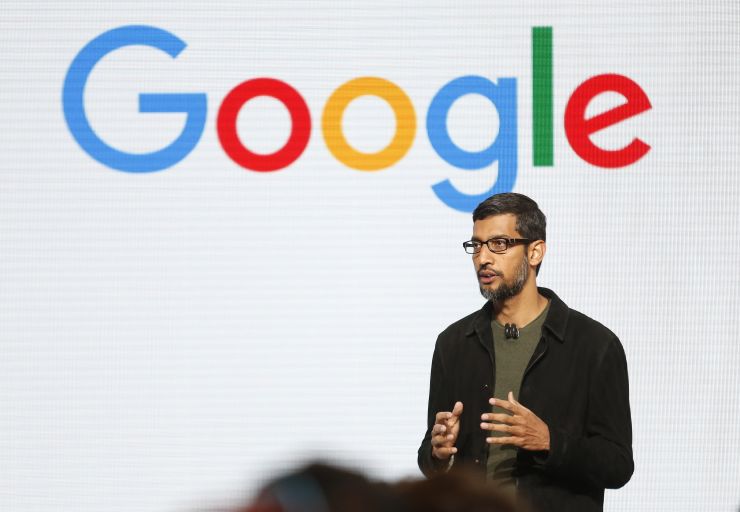
Google CEO Sundar Pichai wrote the annual Founders’ Letter for its parent company Alphabet this week, and he sounded a theme familiar from his on-stage appearance at the company’s Google I/O conference in May: Google wants to help you.
Although Pichai is not a founder, this is his second shot at the note — his first was in 2015, and actual co-founders Larry Page and Sergey Brin have each written one since then.
But Pichai is clearly the public face of the company these days, and was the top Alphabet exec present to answer questions from shareholders on Wednesday as well.
His note reads like a response to growing scrutiny from regulators, press and employees. Over the last two years, Pichai has testified before Congress about political bias and privacy and faced a walkout from employees angry over reports that the company had paid big payments to departing execs accused of sexual misconduct. He has also faced criticism over reported plans to re-enter China with a censored search engine and to sell artificial intelligence technology to the U.S. military.
The affable CEO has handled this pressure with calm grace — as Page and Brin stayed out of the spotlight. Meanwhile, the U.S. Department of Justice is reportedly gearing up for a possible antitrust investigation.
In his letter, which appeared in an Securities and Exchange Commission filing on Wednesday, Pichai sounded a consistently sunny theme:
- The company has moved on from its original goal of “organizing the world’s information.” Pichai writes, “Now we are focused on building an even more helpful Google for everyone. We aspire to give everyone the tools they need to increase their knowledge, health, happiness, and success.”
- “Our products are designed to save you time in ways that add up over the course of a day,” he wrote, citing features like Google Translate and Smart Compose, which helps write emails more quickly.
- “One of our most helpful products is YouTube,” he wrote, pointing out all the helpful educational how-to videos that people watch there. This comes after months of criticism about the site, including allegations that it radicalizes teenagers by guiding them toward extremist content, promotes videos of children to people who have already watched erotic videos, and applies rules about hate speech unevenly. (Later, Pichai does address these problems, noting that “removing hate speech is both a hard computer science problem and a hard societal problem ” and “problematic or borderline content on YouTube accounts for less than 1% of the consumption on the platform.”)
- He writes: “We want to help you connect with the people and things you love,” like photos of family and friends, and “help you disconnect from technology when you want, with Digital Wellbeing features like WindDown to help you switch off at night, or our FamilyLink app, which helps you to manage your kids’ screen time.”
- “We’re also challenging the notion that products need more data to be helpful” — a direct response to the criticism that Google and other large digital platforms invade users’ privacy.
The letter continues, highlighting how Google is helping people in developing countries with cheaper options to get online, helping local communities by investing in housing, helping save journalism with the $300 million Google News Initiative and so on.
Look for this theme of helpfulness to continue to be a big part of Google’s messaging as scrutiny of the company continues to grow.





























